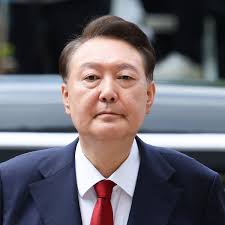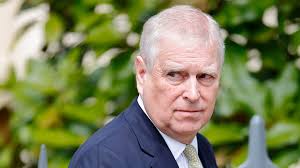General
Google Pushes Back Against Potential DOJ Proposal to Sell Chrome

Google has reacted strongly to reports that the U.S. Department of Justice (DOJ) may propose forcing the tech giant to sell its Chrome browser as part of antitrust remedies. The DOJ is expected to present its final recommendations to a judge this week in response to an August ruling that deemed Google a monopoly in online search.
Bloomberg reported the DOJ might also push for new restrictions on Google’s artificial intelligence (AI), Android operating system, and data usage practices. In a statement, Google executive Lee-Anne Mulholland criticized the proposal, saying, “The DOJ continues to push a radical agenda that goes far beyond the legal issues in this case.”
Mulholland warned that such measures would harm consumers, developers, and U.S. technological leadership at a critical time for innovation.
Chrome is the dominant web browser worldwide, commanding 64.61% of the global market as of October, according to Similarweb. Google’s search engine, with an estimated 90% global market share, benefits significantly from being the default search option in Chrome and other browsers, such as Safari on iPhones.
Judge Amit Mehta previously described default search engine agreements as “extremely valuable real estate” for Google, noting that competitors would need to spend billions to secure similar deals.
The DOJ has hinted at potentially breaking up Google to address concerns over its ability to leverage products like Chrome, the Play Store, and Android to maintain its search monopoly. Final proposals are expected to include remedies aimed at limiting Google’s dominance across multiple platforms.
Google remains firm in its opposition, maintaining that the proposed measures would negatively impact users and innovation. The outcome of the DOJ’s recommendations will shape the future of antitrust enforcement in the tech industry.
General
South Korea’s ex-president jailed for life over martial law attempt

South Korea has entered a new chapter in its democratic journey after former president Yoon Suk Yeol was sentenced to life imprisonment for orchestrating an insurrection through an attempted imposition of military rule.
A court in Seoul ruled that Yoon sought to undermine constitutional order by deploying military forces to seal off the National Assembly of South Korea and ordering the detention of political opponents on 3 December 2024. Presiding judge Ji Gwi-yeon said the actions caused profound harm to the nation’s democratic foundations and warranted severe punishment. Prosecutors had pushed for the death penalty.
Although the martial law order lasted only a few hours before being overturned by lawmakers, its aftermath has reshaped the political landscape. Large crowds of Yoon’s supporters gathered outside the court ahead of sentencing, holding banners and expressing hope for his return. Across from them stood demonstrators demanding the harshest penalty.
Yoon remained composed as the ruling was delivered. His legal team rejected the judgment, claiming it lacked evidentiary basis and accusing the court of bias. An appeal from either side would move the case to the Supreme Court of Korea, potentially extending legal proceedings for months.
The crisis began when Yoon announced martial law during a televised address, citing the need to defend the state from forces he alleged were sympathetic to North Korea. However, the move unfolded against a backdrop of mounting domestic pressure, including legislative gridlock and corruption allegations involving his wife.
Lawmakers ultimately forced their way into the National Assembly to reverse the decree, triggering a period of political upheaval that led to Yoon’s impeachment and multiple prosecutions of senior officials.
The court has already handed down significant sentences to others implicated in the plot. Former prime minister Han Duck-soo received a 23-year prison term, while former defence minister Kim Yong-hyun was jailed for 30 years after advising the martial law order.
Additional convictions have followed for key figures including ex-interior minister Lee Sang-min, former intelligence commander Roh Sang-won, and ex-police chief Cho Ji-ho—with judges describing the episode as an “insurrection from the top”.
General
Trump threatens Canada with 100% tariffs over China trade deal

US President Donald Trump has warned that Canada could face sweeping trade penalties if it deepens its commercial ties with China, signalling a fresh phase in North American trade tensions even as global economic relationships continue to evolve.
In a message posted on his Truth Social platform on Saturday, Trump said the United States would impose a 100% tariff on all Canadian goods entering the country should Ottawa proceed with a trade agreement with Beijing. “If Canada makes a deal with China, it will immediately be hit with a 100% Tariff against all Canadian goods and products coming into the U.S.A.,” he wrote.
The warning comes amid increasingly strained relations between Trump and Canadian Prime Minister Mark Carney. Tensions have intensified following Carney’s recent speech at the World Economic Forum in Davos, Switzerland, where he called for smaller and mid-sized nations to assert themselves amid shifting global power structures. His remarks were widely interpreted as a pushback against the dominance of major powers in shaping the world economic order.
Carney has also held high-level talks with Chinese President Xi Jinping, after which Canada announced it had reached a trade agreement with China. The deal reportedly includes cooperation on electric vehicles, a sector seen as central to the future of global manufacturing and the green energy transition.
Responding to those developments, Trump again referred to the Canadian leader as “Governor Carney” and accused Canada of attempting to serve as a conduit for Chinese exports into the US market. He wrote that if Carney “thinks he is going to make Canada a ‘Drop Off Port’ for China to send goods and products into the United States, he is sorely mistaken.”
While Trump did not outline a specific timeline or provide further details on how the proposed tariffs would be implemented, his remarks echoed earlier rhetoric. Last year, during a previous dispute, Trump repeatedly described Canada as America’s “51st state,” labelled its leader a “governor,” and even suggested the US might seek to acquire the country outright — comments that drew strong reactions north of the border.
Despite these sharp exchanges, relations between Washington and Ottawa had shown signs of stabilising in recent months. However, Trump’s renewed focus on territorial ambitions regarding Greenland and his critical comments about Nato have again placed him at odds with both Canadian and European leaders.
In Davos this week, Carney stopped short of naming Trump directly but cautioned that the US-led global order was at risk of a “rupture,” language that appeared to provoke a forceful response from the US president. Speaking after Carney, Trump asserted the depth of economic ties between the two neighbours, saying, “Canada lives because of the United States.”
General
Why Businesses in Cypress, TX Are Turning to Abii & Associates for Legal Guidance

As the commercial landscape in Cypress, Texas continues to expand, more local businesses are recognizing the importance of having legal protection built into their operations. From startup founders to seasoned entrepreneurs, one law firm is quickly becoming the go-to resource for business legal services: Abii & Associates.
With a growing number of small and mid-sized businesses calling Cypress home, the need for reliable, strategic legal counsel has never been greater. Abii & Associates has stepped in to fill that gap, offering tailored legal solutions for companies navigating formation, contracts, compliance, and growth challenges.
Legal Clarity for Local Business Owners
Running a successful business in Cypress, TX requires more than just a good idea. Business owners must consider how to structure their companies, protect their intellectual property, negotiate contracts, and comply with state and federal laws.
Abii & Associates provides a full range of business and corporate legal services, including:
- LLC and corporation formation
- Contract drafting and review
- Employment policies and advisory
- Commercial lease and vendor agreements
- Partnership and shareholder disputes
- Business purchases and sales
- Regulatory compliance and liability protection
“Businesses in Cypress, TX deserve legal support that’s both strategic and personal,” said a spokesperson for the firm. “We help clients make smart decisions today to avoid expensive problems tomorrow.”
Trusted by the Cypress Business Community
What sets Abii & Associates apart is their hands-on, responsive approach. Business owners report that the firm offers legal advice that’s easy to understand—and even easier to implement.
One local entrepreneur shared,
“They took the time to understand my business, not just my legal question. The advice was spot-on, and it gave me confidence moving forward.”
Abii & Associates doesn’t rely on cookie-cutter templates or generic solutions. Instead, they craft legal strategies that align with the unique structure, size, and goals of each business they serve.
Supporting Growth in Cypress, TX
Cypress continues to attract new residents and businesses, making it a key hub for economic development in the Houston metro area. Abii & Associates’ decision to expand services in the area is already making a difference for local companies looking to protect and grow their enterprises.
“We’re committed to helping businesses in Cypress, TX build on a strong legal foundation,” the firm adds. “When your legal framework is solid, your business is freer to thrive.”
To learn more about Abii & Associates’ services for Cypress business owners, visit:
👉 https://www.abiilegal.com/practice-area/business-and-corporate-lawyer-serving-cypress-texas
-

 News1 week ago
News1 week agoPolice Review Private Flights at Stansted Following Epstein File Revelations
-

 Entertainment1 week ago
Entertainment1 week agoTech-Inspired Musician Look Mum No Computer to Represent UK at Eurovision
-

 News1 week ago
News1 week agoDNA Test Yields No Match in Search for Missing Nancy Guthrie
-

 News1 week ago
News1 week agoRussia killed opposition leader Alexei Navalny using dart frog toxin, UK says
-

 News1 week ago
News1 week agoTributes Pour In as Civil Rights Icon Jesse Jackson Dies at 84
-

 General6 days ago
General6 days agoSouth Korea’s ex-president jailed for life over martial law attempt
-

 News2 days ago
News2 days agoBritish Tourist Among 19 Victims in Tragic Nepal Bus Crash
-

 News6 days ago
News6 days agoAndrew arrested on suspicion of misconduct in public office










